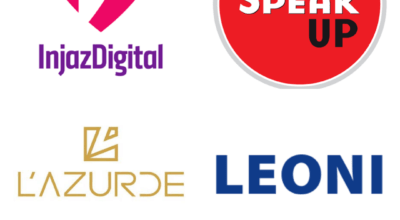Companies like Facebook, Amazon and Apple are rapidly growing more impactful. Once upon a time, they were all startups sparked by young, ambitious entrepreneurs. This spiked the popularity and appeal of startups and entrepreneurship.
RiseUp Summit blew up this year and continued its success in giving startups the platform they deserve. After its enormous success, more and more Egyptians are talking about startups and entrepreneurs. But does our familiarity with these ideas exceed our knowledge of it? To answer that question, we could start by debunking some of the common misconceptions and myths about the startup world that one might have.
#1 Entrepreneurship is a foreign concept and irrelevant to Egyptian culture
Many people argue that Talaat Harb, the renowned Egyptian economist and the founder of Banque Misr, was the first major Egyptian entrepreneur. So, it is far from being a recently emerging concept in Egypt. And according to a recent study by the Global Entrepreneurship Monitor (GEM), more than 73% of Egyptians think entrepreneurship is a good career choice. The study’s aim was to provide meaningful insights and analyses on entrepreneurship and startups in the period between 2010 and 2015.
#2 Everyone wants to become an entrepreneur and the market is getting saturated
This is also false. The same study mentioned above also found that – if anything – we’re behind. The global average of “early-stage entrepreneurs” is twice the Egyptian average. The authors of the GEM report suggest that this is an indicator of our workforce’s dependence on more traditional employment.
#3 Starting a business in Egypt is difficult
It mainly depends on your point of reference, but – in general – it is not. Abdelhameed Sharara, the CEO of RiseUp Summit, which is one of the earliest catalysts in Egypt’s entrepreneurial revolution, told the Economist that “if you succeed in a country like Egypt, everywhere else is easy.” But in our recent interview with him he said that “the advantage of the Egyptian market is that it is a super super virgin market and there are a lot of opportunities.”
The following info-graph illustrates how easy it is to start versus do business in countries in the MENA region. As you can tell, it is relatively easy to start a business in Egypt. But when it comes to doing business, things get tricky. For example, closing a company takes five to ten years and a ton of paperwork. For more information on the ease of doing business in Egypt, check out this helpful world bank index.
#4 Entrepreneurs usually come from privileged backgrounds
But in the period of 2010-2015, the GEM report states that more than 42 percent of early-stage entrepreneurs are “necessity entrepreneurs”, who start a business due to a lack of other employment opportunities! In addition, startup incubators and accelerators like the AUC Venture Lab, Gesr MEK and Injaz Egypt alongside gigantic networking events like the RiseUp Summit, becoming a successful startup entrepreneur requires less and less privileges.
#5 Entrepreneurs are usually young, ambitious people
Perhaps this is because these are the ones that seem to receive the most attention from the media, but there is no evidence that this is necessarily the case. Regardless of what we may have grown accustomed to, an entrepreneur is any individual who starts a business with the hope of making a profit. And by that definition, a startup could be a novel tech-enabled service or a carpentry workshop.
#6 Apps and websites are easy money
This one comes from Mohamed Hamza, the manager at AUC Venture Lab, a leading accelerator in Egypt’s startup scene.
We interviewed him a few days ago at RiseUp’18 and asked what kind of misconceptions he encounters the most from aspiring entrepreneurs. “Many people think that tech-enabled startups based on a website or an app are easy money or something you can do next to your day job. But that couldn’t be farther from the truth,” said Hamza. “Getting a startup off the ground requires a lot of dedication, perseverance and flexibility. You could have a great idea that doesn’t work because the market is not ready for it yet.
Have a different say or a myth you think should be added? Please do tell us in the comments section.



























